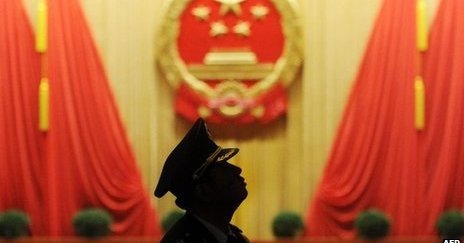Since the beginning of the Ukraine crisis in December, the international community pricked up its ears to listen to China’s opinion of the on-ongoing situation. Much has been written regarding China’s stance on the issue, which considers various geo-political and economic factors. There appear to be two opposing camps in respect to China’s obfuscated policy. The former contends that China is the main beneficiary of the crisis, given that its territorial remoteness to Ukraine puts China in an advantageous position while the West and Russia try to cripple one another’s efforts to steer the course of the crisis. The latter, however, claims that China’s delicate diplomacy which does not explicitly condemn Russia’s aggression, is ultimately digging its own grave. For Russia’s annexation to Crimea in the long run might have important implications for China. Both have valid points.
Beijing’s famous non-interference policy has become evident in Ukraine crisis once again when it abstained from voting the UN Security Council draft resolution for March 16th Crimea referendum. This well calculated abstention however does not mean that Chinese officials remain indifferent to the crisis. Although China’s traditional policy has underscored the parts should respect the territorial integrity of Ukraine and peaceful negotiations as a way to solve the crisis, a couple of statements released by Chinese officials on many occasions unveiled China’s sympathy for Russia’s actions. China’s “neither condone nor condemn” policy toward the issue continues to be a source of contention amongst the pundits whether China will be the winner in the long term.
Needless to say, China is allergic to the colourful revolutions. Therefore, toppling down Yanukovych government by the popular uprisings is the last outcome that China would welcome. On the one hand, Crimea’s disassociation from Ukraine by a referendum and popular uprising in Ukraine create concerns among Chinese officials about uneasy regions such as Tibet and Xīnjiāng. On the other hand, China’s emphasis on historical reasons for the root of the Crimea crisis gives China an excellent springboard to conduct referendum in Taiwan for the long lasting unification dream. Upon realization of this danger by the United States, Daniel Russel, Assistant Secretary of State for East Asian and Pacific Affairs, warned China to refrain from Moscow’s Crimean-like policy in East Asia. Therefore, the developments in Ukraine and Crimea are the source of both anxiety and prospect for China.
Economic and political sanctions imposed by the West on Russia for the Crimea referendum according to many international relations scholars, will further push Russia towards China, leading to a formation of a revisionist strategic alliance in the future. Here the main question we need to ask is whether China and Russia can align their policies to the extent that such cooperation threatens the international order. One of the possibilities is that China will get support for its East and South Asia seas policies as long as it backs Russia’s East Europe politics. Notwithstanding, it seems unlikely in the foreseeable future that China can assume leadership role in Asia-Pacific region. China’s military capacity pales in comparison to that of the US and stability for economic development still enjoys its privileged status in the agenda. The success of such an alliance also depends on the United States’ competition and cooperation perception.
Moreover, Russia’s aggression towards Ukraine under the pretext of protecting the rights of Russians and Russian speaking Ukrainians might be an indication for its power projection further towards Central Asia where recently China competes to winning the Central Asian’s leaders heart for economic and security cooperation. Although less discernable, there is also a convergence of positions between the EU and China towards former Soviet Russia territory. Both parties support the independence of former Soviet satellite states in order to obstruct the potential resurgence of Russia’s empire.
Regarding the economy, China avoids upsetting all the parties involved in the crisis, recognizing the possibility that its economic interest can be secured by following obfuscated measurements. China’s energy demand for its giant economy is one of the key basis that China would avoid deteriorating the relations with Russia. Furthermore, the 100 billion dollars trade volume between the parties is also another restrictive factor for China to evince palpably its side in favour of the West vis-a-vis the crisis, despite its principled non-interference policy.
On the other hand, Chinese investments approximating 8 billion dollars in Ukraine compels China to tread lightly so as the next Ukraine government does not alienate China from the market. As China becomes an increasingly middle-income country, its food supply faces mounting challenge due to inefficient food production and lack of sufficient fertile and/or arable land at home. In this regard, China signed a deal with Kiev in 2013 to ease its concerns about food security through the pledge of 3 million hectares of farmland for China’s use.
What do all these considerations mean for China? Yes, China remains relatively quiet on the matter, but its well-calculated quietness can hardly be interpreted as aloofness from the crisis. The international community should not fool itself into believing that China will join the condemnation club against Russia. After all, Russia is both the UNSC permanent member with whom China shares similar ideas about the international system and a great trade partner essential to China’s economic development. Nor will China give conspicuous support to Russia given the potential to antagonize the West and harm its economic interest in Ukraine. In the short term, such an approach will best serve China’s interest. However, in the long run, if China wants to be a responsible power through its positive soft-power image, it has to follow a more constructive policy in conflict resolutions. Therefore, it seems safe to conclude that the matter of whether China wins or losses in Ukraine remain as controversial as their most cherished non-interference policy.

Follow the comments: |
|
